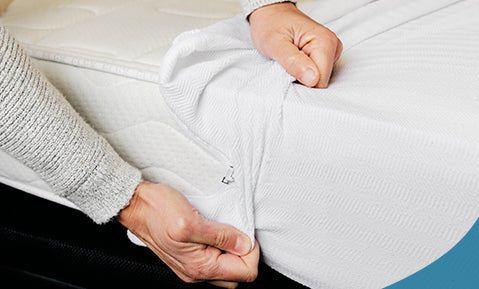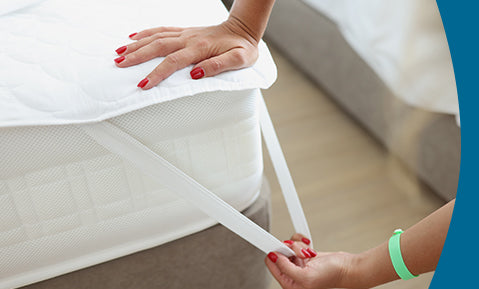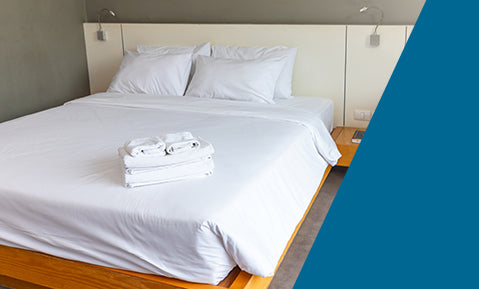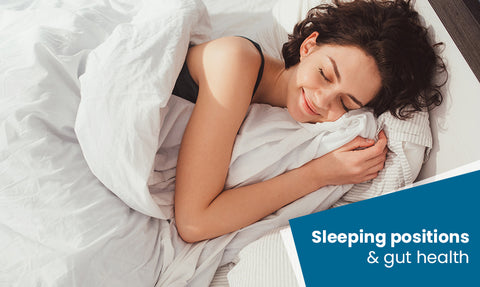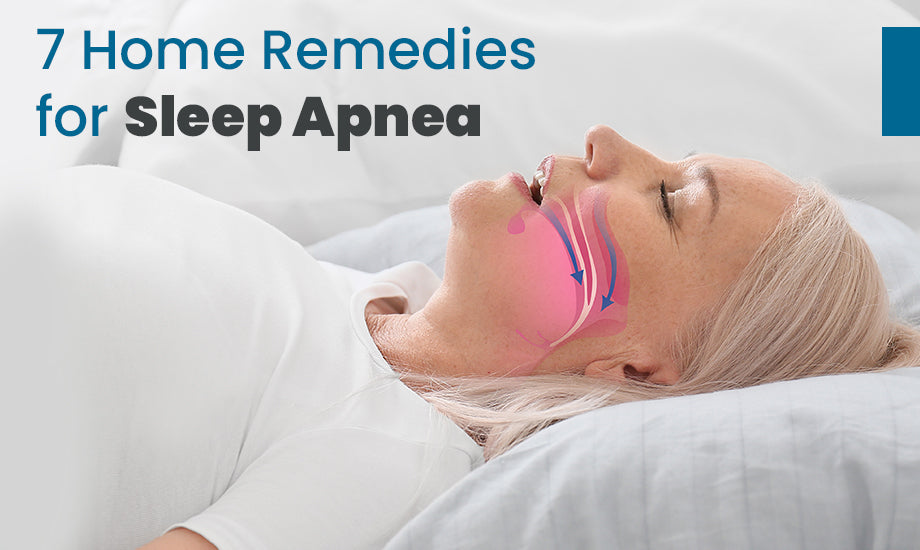
Do you face trouble breathing while you are asleep? Do you ever wake up from bed gasping for air? Maybe you are suffering from sleep Apnea. Continue reading to know more about the home remedies for sleep apnea.
What is Sleep Apnea?
Sleep apnea is a quite dangerous condition that happens when your breathing randomly stops and starts while sleeping. If you don’t treat it properly it can cause loud snoring, tiredness during daytime or a bigger problem like high blood pressure and heart attack.
It is very different from regular snoring. Usually, the cause of snoring is either nasal or throat conditions or obesity. Both primary snoring and sleep apnea-related snoring occur from the tissues in your throat vibrating, however those who have sleep apnea typically:
- Snore significantly more loudly than people who face regular snoring ∙ Stop when they breathe for too long
- Take in very less air while breathing
What are the Types of Sleep Apnea?
Sleep apnea can be differentiated into two types:
- Obstructive sleep apnea: The more typical of the two is obstructive sleep apnea. When the upper airway repeatedly becomes completely or partially blocked while you sleep, you develop obstructive sleep apnea. As the pressure increases during an apnoeic episode, the diaphragm and chest muscles work harder to open the airway. Usually, a loud gasp or sudden jerk of the body signals the start of breathing again. These breaks in breathing can obstruct deep sleep, reduce the amount of oxygen reaching vital organs, and cause irregular heart rhythms.
- Central sleep apnea: Your airway doesn't become blocked with this kind. Rather, because of problems in your respiratory control centre, your brain is unable to instruct your muscles to breathe. It is related to how your central nervous system functions.
People with neuromuscular disorders, stroke survivors, people with heart failure, and those with various types of heart, kidney, or lung disease are more likely to develop central sleep apnea.
Symptoms of Sleep Apnea
Generally, you might not notice your first obstructive sleep apnea symptoms. Instead, your bed companion might alert you to them. The most common symptoms include:
- Loud snoring
- Fatigue or sleepiness during daytime
- Often waking when sleeping
- Depression or anxiety
- Trouble concentrating
- Dry mouth when waking up
- Headaches
- Sexual problems
People who suffer from central sleep apnea commonly claim to have frequent awakenings or sleeplessness. However, they could also cough or gasp as they awaken. Children might not face these symptoms. Sleep apnea in a child can be assumed by:
- Sleepiness or laziness during daytime
- Poor memory
- Sweating a lot at night
- Mouth breathing
- Urinating while sleeping
Who might get Sleep Apnea?
Sleep apnea affects about 10% of women and 25% of men. Sleep apnea can affect people of all ages, including babies and young children, as well as people over 50 who are more on the fatter side. Obstructive sleep apnea patients usually have similar physical traits and clinical traits in common.
These include excessively high necks, excessive weight, and structural issues including nasal blockages, low-hanging soft palates, large tonsils, or small, overbites jaws that restrict the upper airway.
Causes of Sleep Apnea
Many people who suffer from obstructive sleep apnea have constricted airways as a result of being overweight and having an accumulation of soft fat tissue in their windpipes. In fact, it's thought that over 70% of people who have sleep apnea are overweight. But other issues, such as abnormally large tonsils, might also be a factor in sleep apnea.
Apart from that, the following people may have a higher chance of developing sleep apnea:
- People who, occasionally as a result of allergies or other disorders that cause congestion, have tiny airways in their nostrils, throats, or mouths
- People who have a family history of sleep apnea
- People with a habit of smoking a lot
- People with hypertension
- People who have untreated hypothyroidism
- People who have acromegaly
- People with a high chance of heart failure
Effects of Sleep Apnea
Sleep apnea can cause a variety of health issues, such as diabetes, arrhythmias, heart attacks, cardiomyopathy, obesity, hypertension, stroke, and cardiomyopathy if it is not treated.
Since people who suffer from sleep apnea typically have increased blood pressure, it is possible that the condition can lead to arrhythmias and heart failure.
In fact, around 50% of persons with heart failure or atrial fibrillation also have sleep apnea. These happen because sleep apnea can cause:
- oxygen levels dropping repeatedly or hypoxia.
- changes in the amounts of carbon dioxide.
- alterations in chest pressure that have direct consequences on the heart.
- elevated levels of inflammation-related indicators.
Home Remedies for Sleep Apnea
Using a CPAP mask at night is a part of conventional sleep apea therapy. Even if it works, some people don't like this approach. A few natural remedies and good practices can also provide the same results. Here are seven alternate methods for easing the effects of sleep apnea.
- Keep a Healthy Weight
People who are suffering from sleep apnea are often told to lose weight by doctors. Obesity in general, or a heavy upper body can increase the chance of blockage in nasal passages and airways. These difficulties may cause your breathing to stop abruptly or for an extended period while you sleep.
Maintaining a healthy weight allows your airways to remain open and reduces your symptoms of sleep apnea. Obese people who lose weight moderately can avoid upper airway surgery or lengthy CPAP therapy. Losing weight can sometimes heal sleep apnea.
However, if you gain weight again, the problem may come back.
- Try Yoga
Even if you are not a fan of yoga, after reading this, you might head to pick up your yoga mat. If you are having sleep apnea, your throat and mouth muscles relax while you're asleep and restrict your airway. This restriction could be either partial or whole.
Exercises for the throat have been demonstrated to assist lessen symptoms brought on by these obstructions, which may help lessen the severity of sleep apnea symptoms. There are a variety of throat workouts that involve shouting or singing and have been proven to be effective. In fact, one study discovered that regular singing activities lessened snoring's severity.
Yoga has two distinct advantages. Yoga strengthens the body through activity while also strengthening the throat through breathing techniques. Yoga delivers the health benefits of exercise, including the potential for weight loss, which as we all know, helps lower the severity of sleep apnea. It also helps improve strength and endurance.
- Change Sleeping Position
It might sound like a small change but changing your sleeping positions can actually help if you are having sleep apnea and can help you get better sleep.
It has been proved in a 2006 study that more than 50% of obstructive sleep apnea cases can be blamed on poor sleeping postures. According to studies, sleeping on your back, often known as the supine posture, can make symptoms worse.
Adults who lie on their sides while sleeping could see an improvement in their regular breathing. As per 2002 research, however, it was discovered that toddlers with sleep apnea sleep more soundly on their backs. If you want to know more about sleeping postures and more sleep apnea remedies you can consult your doctor about your sleeping issues.
- Use Oral Devices
Oral appliances can help with sleep apnea by moving your jaw or tongue to keep your airway open while you sleep. There are two main categories of oral devices: tongue-stabilizing devices and mandibular advancement devices.
These reduce the obstruction in the back of your throat by advancing your lower jaw or tongue. These devices range from affordable over-the-counter (OTC) choices to ones that are fitted specifically for each individual by a dentist. Oral appliances are recommended as a successful treatment for sleep apnea by the American Academy of Dental Sleep Medicine.
When a patient with sleep apnea is unable to tolerate a CPAP machine, a 2015 guideline suggests oral appliances. Because they permit precise jaw alignment, which will improve the quality of sleep, this recommendation favours custom-fit appliances over OTC alternatives.
- Use a Humidifier
Air moisture can be added to via humidifiers. Anyone who has sleep apnea will benefit from this because dry air can irritate the body and the respiratory system.
Additionally, humidifiers can aid in clearing the airways, easing congestion, and improving breathing clarity. Consider putting in some peppermint, lavender, or eucalyptus oil to get more use out of your humidifier. You might feel more relaxed if there is a relaxing scent around.
It may go without saying but always adhere to the cleaning recommendations provided by the manufacturer. If you don't keep your humidifier clean and sterilized, it could become a breeding ground for germs.
Both of which prevent you from breathing easily at night or are beneficial for your lungs.
- Eat more Magnesium
According to one study, those who suffer from sleep apnea had reduced magnesium levels in their body. Higher blood levels of c-reactive protein were associated with those decreased magnesium levels.
The liver produces C-reactive proteins to reduce bodily inflammation. Those with sleep apnea endure significant oxidative damage at night. Magnesium has strong anti-inflammatory qualities that assist decrease inflammation and may be beneficial for those who suffer from sleep apnea.
Healthy foods containing magnesium include avocados, seeds, almonds, bananas, and leafy greens including kale, spinach, and collard greens. Magnesium levels are high even in dark chocolate. Magnesium supplements are also there, but consult your doctor before taking any supplement, particularly if you have a health problem that hasn't been diagnosed or if you're taking any other medications.
Taking Epsom salt baths before bed is another way to increase your body's magnesium levels. A warm bath might prepare your body for good sleep.
- Avoid Smoking and Consuming Alcohol
Avoid unrestricted usage of alcohol and cigarette to help ease the symptoms of sleep apnea. This is because, alcohol helps in relaxing the muscles in your throat, which might make your normal breathing pattern even more disruptive if you have sleep apnea.
A disrupted sleep cycle and snoring are the results of that disturbance. Smoking tobacco results in airway oedema and irritation. This aggravates sleep apnea and causes snoring.
In fact, a 2012 study found that smoking was a significant risk factor for developing sleep apnea. It is interesting to note that the study found that those with sleep apnea also tend to smoke.
Conclusion and CTA
So, now that you know that one of the remedies for sleep apnea is sleeping in a good posture, you must also know that good sleep is aided by proper pillows and a soft mattress. So, invest in a good pillow and do not compromise on your sleep anymore.

